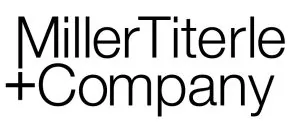PPPA + SLAPP
The Honourable David Eby, Attorney General, has introduced legislation aimed at enhancing freedom of expression and public participation, entitled the Protection of Public Participation Act ("PPPA") into the Legislative Assembly of British Columbia. In his introduction of the PPPA (Bill-2) to the BC Legislature, Eby noted that the “...purpose of this act is to enhance public participation by protecting expression on matters of public interest and litigation that unduly limits such expression.”
The PPPA specifically aims to protect individuals from strategic lawsuits against public participation ("SLAPP"). SLAPPs are lawsuits directed to shut down public criticism by imposing legal action. These lawsuits are often initiated to intimidate and silence those who have criticized the plaintiff with respect to a matter of public interest. SLAPPs are often used to dissuade private citizens and interests groups, with limited financial resources, from participating in regulatory proceedings, such as those before the National Energy Board for example.
The PPPA primarily shuffles the procedure, burden of proof, costs and damages in SLAPP proceedings. If the PPPA becomes law, defendants in SLAPP proceedings may apply to dismiss the matter on the basis that it impacts their freedom of expression. Courts will be required to grant a dismissal order unless the plaintiff is able to establish the following:
- the proceeding has substantial merit;
- there is no valid defence available for the defendant; and
- the harm experienced as a result of the expression is serious enough that the public interest in continuing the proceeding outweighs the public interest in protecting the expression.
Under the draft legislation, if the plaintiff is unsuccessful and the action is dismissed, the defendant would be entitled to be reimbursed their costs in defending against the SLAPP. Additionally, the court will have the discretion to award additional damages if it finds that the plaintiff brought the SLAPP action in bad faith or for an improper purpose.
The proposed legislation strongly resembles the anti-SLAPP laws established in Ontario. The Ontario Court of Appeal has provided some clarification on how courts are to apply the legislation in a way that best meets its objectives. In Ontario, the legislation has become a powerful tool in protecting freedom of expression and the resources of defendants in SLAPP proceedings.
The PPPA was first introduced in May 2018, and passed its second reading on February 14, 2019. The Bill has been referred to a Committee of the Whole House for consideration at BC Legislature's next sitting. MT+Co. will provide an update as the legislative process continues.
The content of this article is intended to provide a general guide to the subject matter. Specialist advice should be sought about your specific circumstances.

